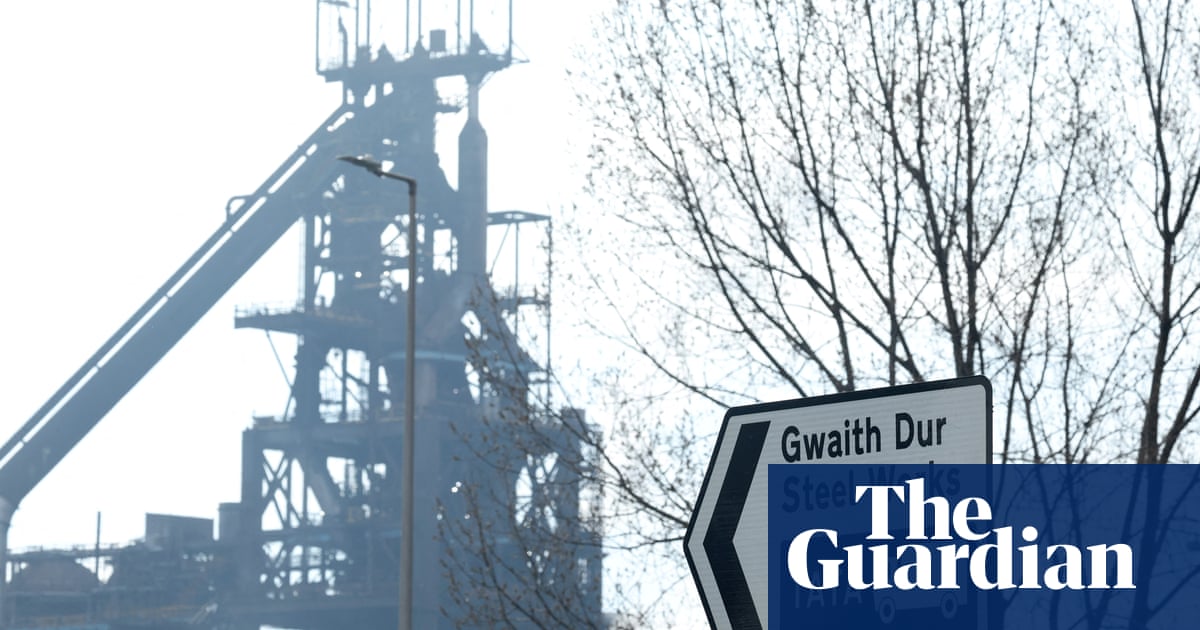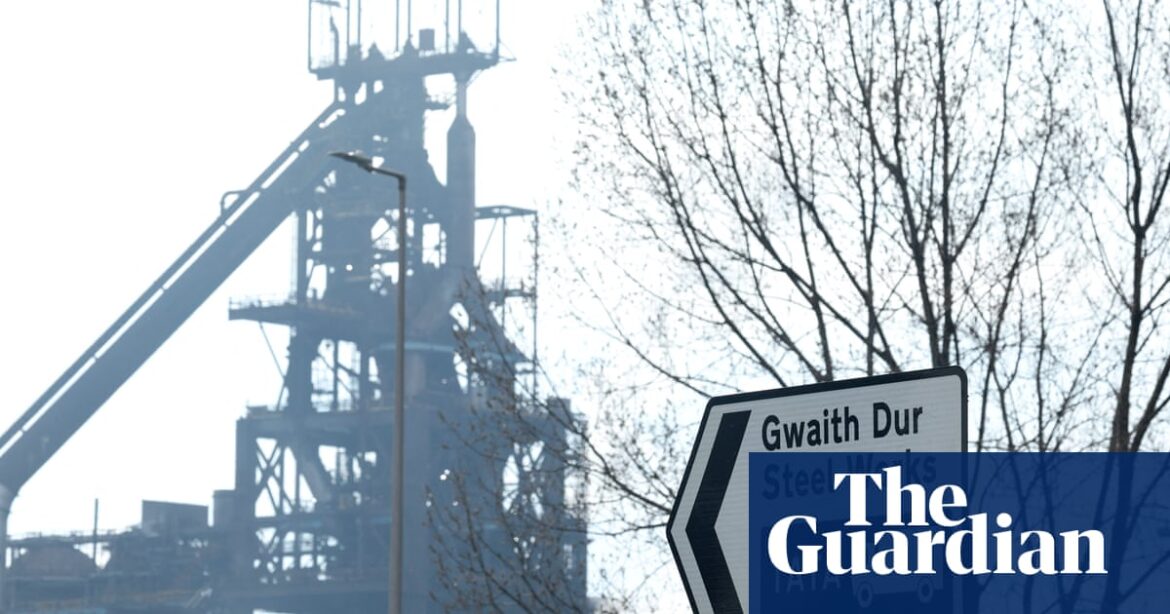
Losses at Tata Steel’s UK operations ballooned to £1.12bn due to the cost of closing Port Talbot’s two blast furnaces.
Accounts for the Indian-owned company show that pre-tax losses quadrupled from £279m to £1.12bn in the year to the end of March due to restructuring costs associated with the closure of its blast furnaces and coke ovens at the site in south Wales.
Tata ended primary steelmaking at Port Talbot in September with the closure of its last blast furnace, a decision that will lead to 2,500 job losses. This followed the closure in July of the first of its blast furnaces. Tata wrote off £619m in restructuring, impairment and disposal costs before the shutdowns.
Revenues fell 16% to £2.63bn on lower steel prices and falling volumes.
At the time of the closure, the business secretary, Jonathan Reynolds, agreed a deal in which the government will provide £500m towards the construction of a new greener electric arc furnace at the site that will produce 3.2m tonnes a year of steel from scrap metal, with the plant’s owners, Tata Steel, paying £750m.
The electric arc furnace is less labour-intensive, with about 500 jobs being created during its construction. It is expected to be operational in late 2027.
The accounts showed redundancies would cost Tata £152m. It had about 7,900 employees as of March.
Tata said that, after the closure of the blast furnaces, a significant proportion of the slab and coil that its UK operations needed were likely to come from its other sites in India and the Netherlands.
Unions and politicians have warned of the threat to the UK’s economy and security from a lack of ability to produce raw steel.
Tata said the switch to making steel with scrap metal instead of coal and iron ore would reduce Port Talbot’s emissions by more than 5m tonnes.
after newsletter promotion
The Guardian revealed this week that the government was considering nationalising British Steel, which operates the UK’s last remaining blast furnaces, at Scunthorpe in Lincolnshire, and is owned by China’s Jingye.
Together with Port Talbot, Scunthorpe was once part of the Anglo-Dutch steelmaker Corus, which Tata (also the owner of Jaguar Land Rover) bought in 2007 for a top-of-the-market £6.2bn, shortly before the financial crisis.
Source: theguardian.com



